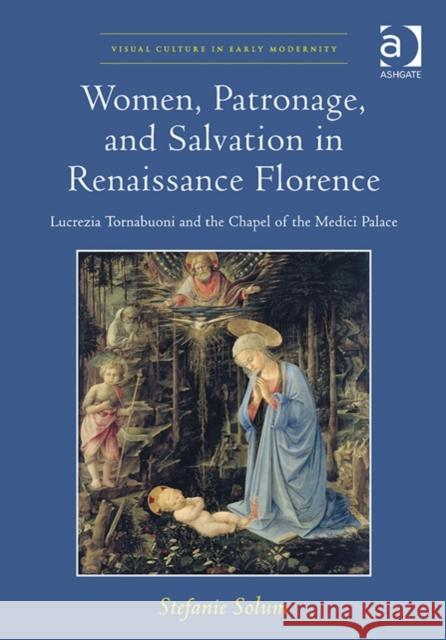Women, Patronage, and Salvation in Renaissance Florence-Lucrezia Tornabuoni and the Chapel of the Medici Palace » książka
Women, Patronage, and Salvation in Renaissance Florence-Lucrezia Tornabuoni and the Chapel of the Medici Palace
ISBN-13: 9781409462033 / Angielski / Twarda / 2015 / 314 str.
Women, Patronage, and Salvation in Renaissance Florence-Lucrezia Tornabuoni and the Chapel of the Medici Palace
ISBN-13: 9781409462033 / Angielski / Twarda / 2015 / 314 str.
(netto: 673,60 VAT: 5%)
Najniższa cena z 30 dni: 654,86
ok. 22 dni roboczych.
Darmowa dostawa!
Long obfuscated by modern definitions of historical evidence and art patronage, Lucrezia Tornabuoni de' Medici's impact on the visual world of her time comes to light in this book, the first full-length scholarly argument for a lay woman's contributions to the visual arts of fifteenth-century Florence. This focused investigation of the Medici family's domestic altarpiece, Filippo Lippi's Adoration of the Christ Child, is broad in its ramifications. Mapping out the cultural network of gender, piety, and power in which Lippi's painting was originally embedded, author Stefanie Solum challenges the received wisdom that women played little part in actively shaping visual culture during the Florentine Quattrocento. She uses visual evidence never before brought to bear on the topic to reveal that Lucrezia Tornabuoni - shrewd power-broker, pious poetess, and mother of the 'Magnificent' Lorenzo de' Medici - also had a profound impact on the visual arts. Lucrezia emerges as a fascinating key to understanding the ways in which female lay religiosity created the visual world of Renaissance Florence. The Medici case study establishes, at long last, a robust historical basis for the assertion of women's agency and patronage in the deeply patriarchal and artistically dynamic society of Quattrocento Florence. As such, it offers a new paradigm for the understanding, and future study, of female patronage during this period.











